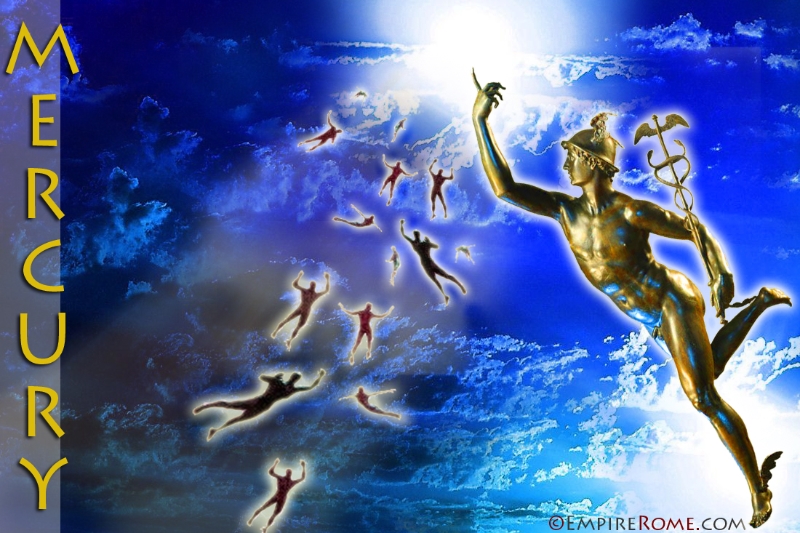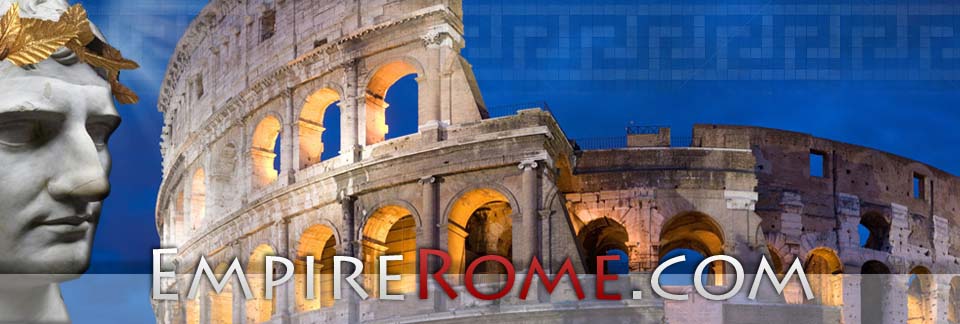
| MERCURY “Messenger of the Gods” | |
| God of: | Divine messages/messenger, guide of the dead, trade, thieves, profit, commerce and a messenger. It was believed his origins came from Greek mythology |
| Type: | Major |
| Roman Name: | Mercury |
| Greek Name: | Hermes |
| Other Names: | Mercurius |
| Festivals: | Mercuralia, May 15 |
| Shrine/Temple: | Centered in the Circus Maximus, between the Palatine and Aventine hills |
Overview
In Ancient Rome Mercury was the god of trade, profit, commerce and was messenger of the gods. In Ancient Roman mythology, Mercury was the guide of the dead; he led souls to the spirit world. Mercury’s origin comes from Greece’s god, Hermes. Mercury and his Greek counterpart share many characteristics. According to Roman legend, Mercury was the son of Jupiter and Maia, an early Italic goddess of spring. Mercury is seen as one of Jupiter’s favorite children.
The Ancient Roman gods knew Mercury to be cunning and at times deceitful. When striking a deal with Mercury, the gods held caution because they knew he was clever and good at trickery. According to Ancient Roman myths, Mercury was the one of the most mischievous of the gods. Mercury was notorious for helping mortals. This means in Roman society he had a huge role in everyday lives. Many of Rome’s citizens wanted to have some interaction with the gods as it was considered ideal and Mercury was a great way to gain that connection.
Festivals and Worship
Mercury was not considered an early god of Rome. Since his origins were of a much later date within the empire, he did not have any cults or priests dedicated to him. Although it should be noted, in Ancient Roman society Mercury was important because of his interaction with mortals. Mercury was given a festival on May fifteenth called Mercuralia. The celebration consisted of merchants of commerce and trade sprinkling water on their heads, ships, businesses, and merchandise.
Duties, Attributes, and Symbols
Mercury’s symbols are the winged helmet and sandals; these winged items gave Mercury the ability to be swift on his feet, especially when delivering a message for the gods. Mercury was also known for his quick wit and mischievous nature.
Mercury’s depictions vary in Ancient Rome. On coins of that time, Mercury is often shown as a young man who is clean shaven with a caduceus and a winged helmet. He is also shown carrying a money bag a majority of the time. Mercury also has winged sandals made of gold that carried him swiftly about. He is also attributed to the rooster in many of his images. Mercury was also credited with dice, astronomy, fire, and the first forms of weights and measurements in Ancient Roman society.
Animals sacred to Mercury were the young rooster, goat, tortoise, and herald.
Fun Facts
Today the Ancient Roman god Mercury is remembered for many things.
The Element Mercury: The chemical element Mercury gets its name from the Ancient Roman god. The Ancient Romans also named an element in the periodic table after Mercury. The names were believed to be given to these objects because they were unstable and erratic just like the Ancient Roman god. The element Mercury is liquid chemical element that is silver in color. It is the only metal element that keeps its liquid state at general temperatures. Mercury is commonly used in measuring equipment like thermometers and other types of meters. Because the element Mercury is very toxic, it is not as commonly used as it once was in these types of equipment. Mercury is used in numerous scientific applications.
The Planet Mercury: Mercury the planet is the first planet in our solar system closest to the Sun. Mercury is known as one of the four terrestrial planets, these planets are rocky and small unlike the large outer gaseous planets.
Mercury is also associated with Wednesday in today’s calendar.
The month of May is said to be named after Mercury’s mother Maia.
Click here to return to Ancient Roman Gods and Goddesses list.

